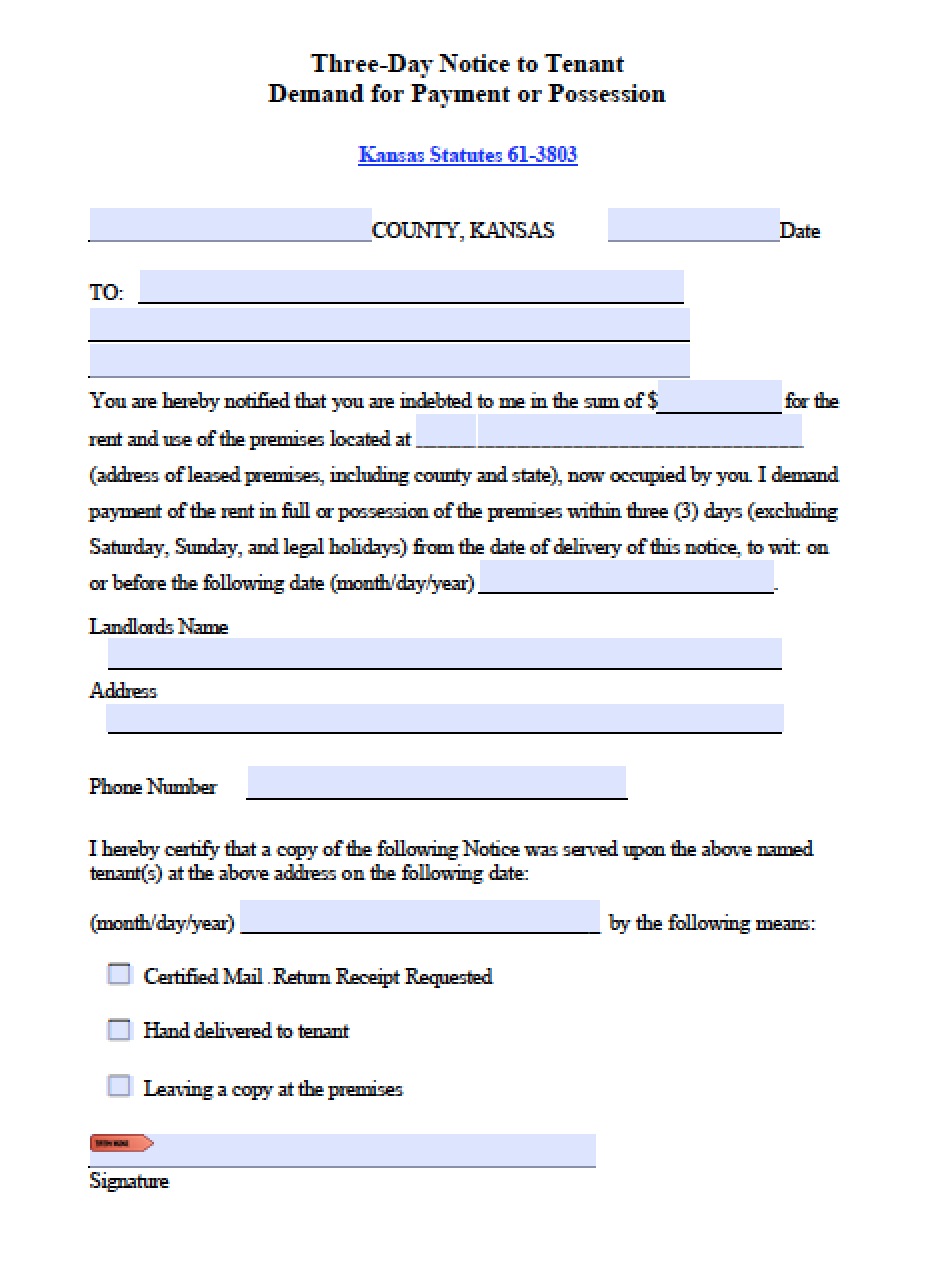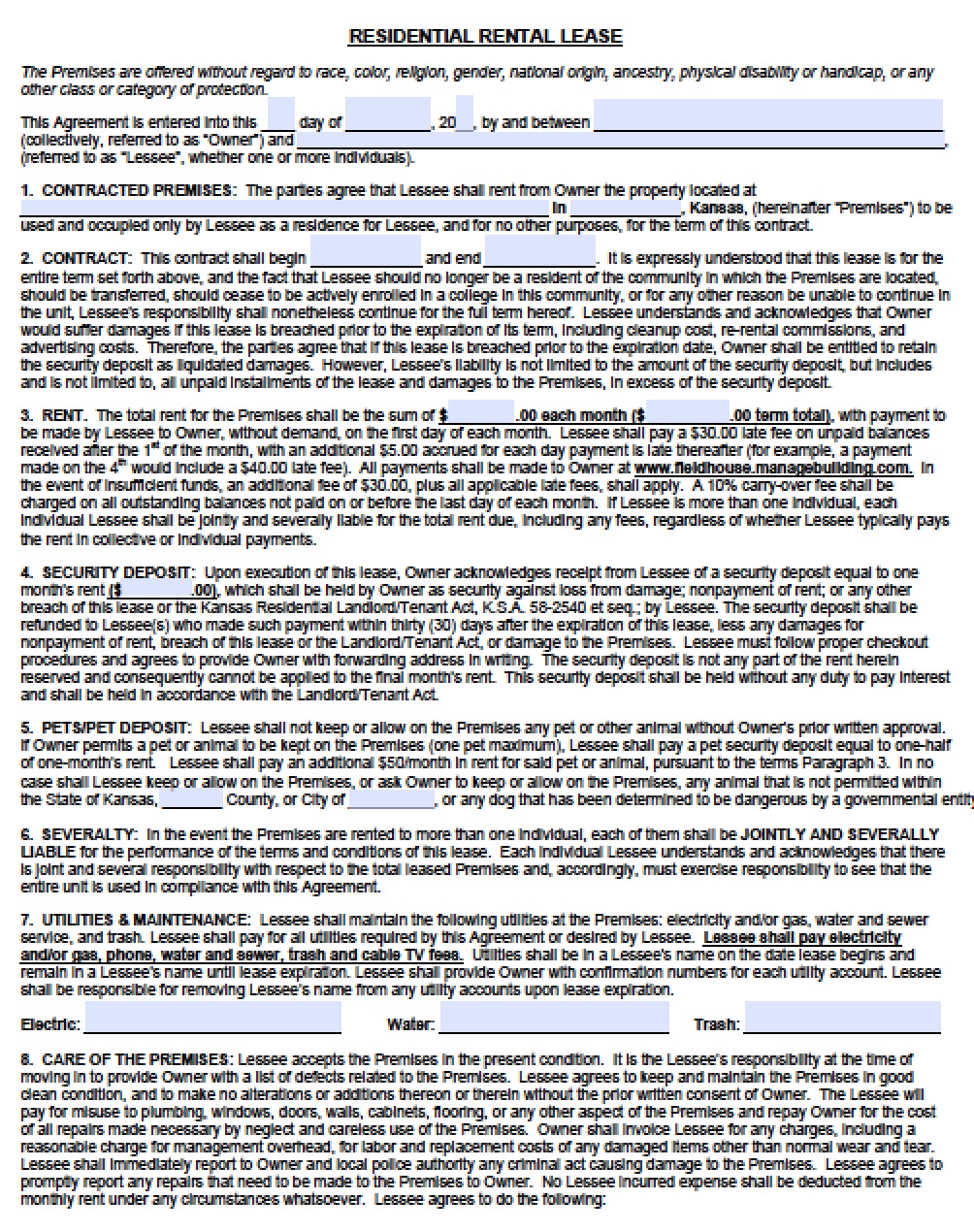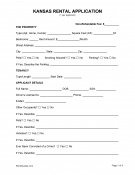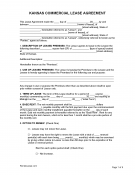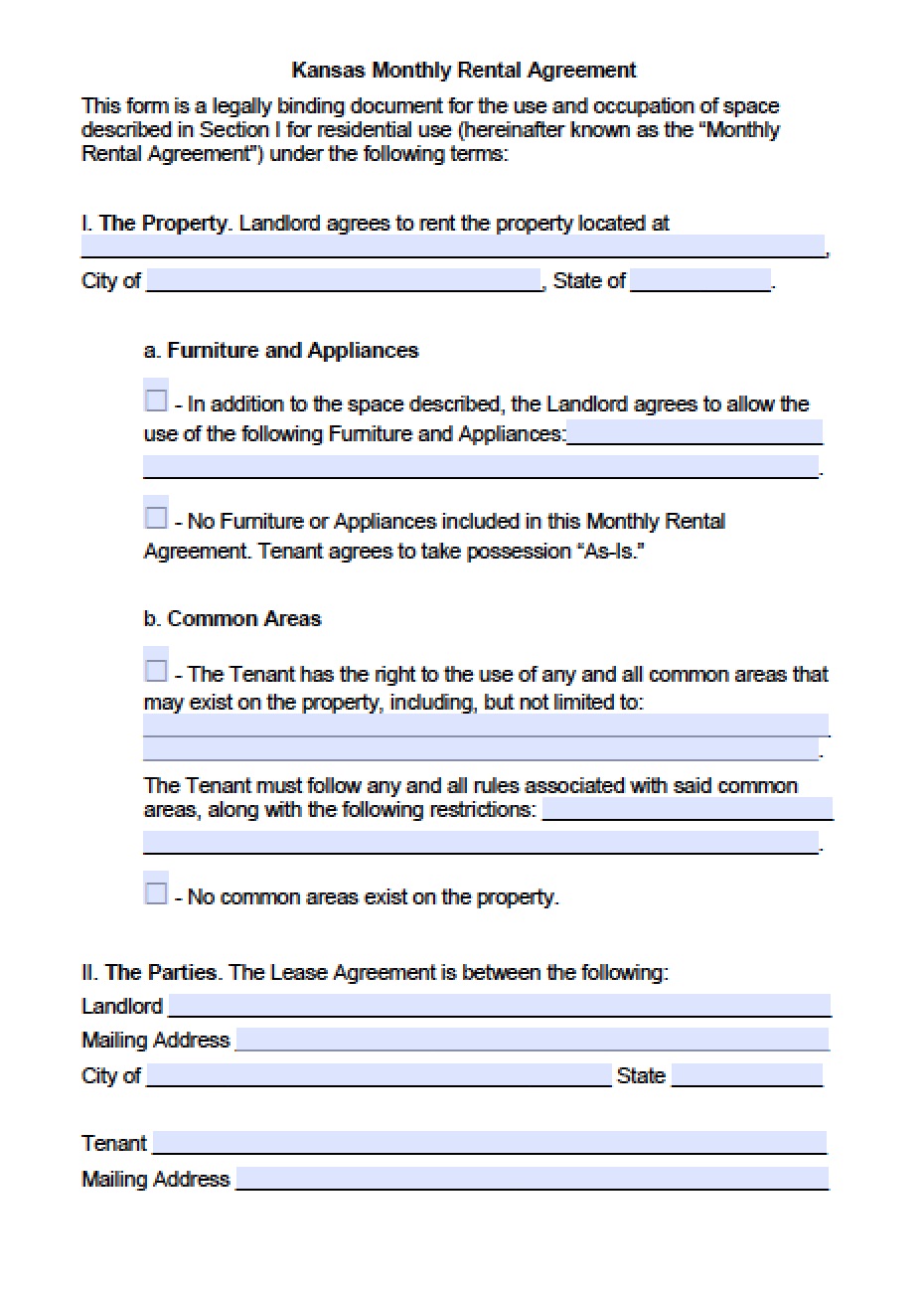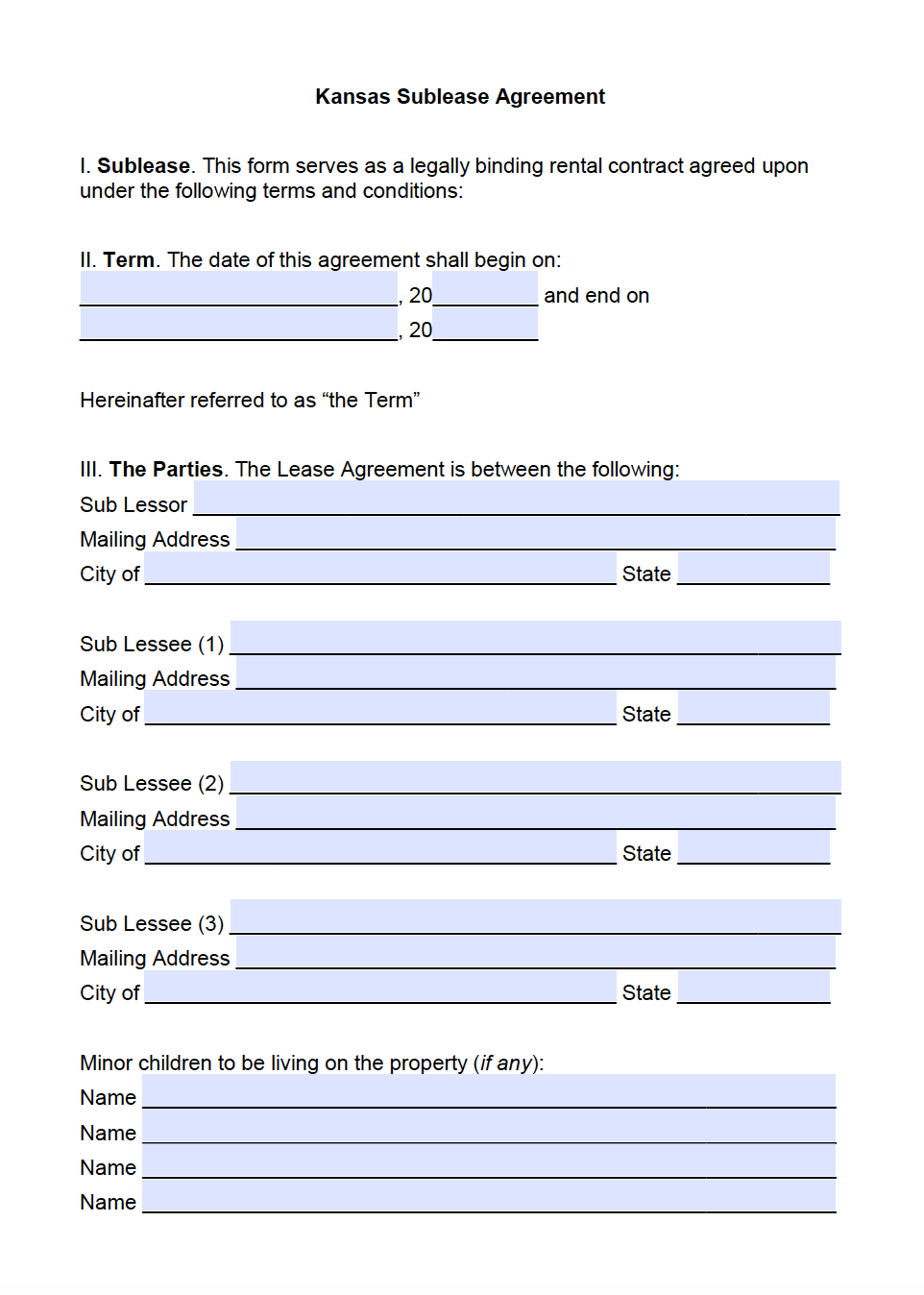Kansas lease agreements are between a landlord and a tenant that pays rent on a monthly basis to use and occupy a property. The landlord will commonly screen the tenant prior to signing a lease through the use of a rental application. After screening and approving the tenant, a lease will be written. There is no rent grace period in Kansas (§ 58-2545) with rent being due at the time and place mentioned in the lease.
Kansas Rental Lease Agreement Templates | PDF
Kansas Lease Agreements
The Kansas three (3) day notice to quit for the non-payment of rent allows a landlord to serve their tenant a notice of possible eviction after not receiving rent on the due date. The tenant will have three (3) days to either pay the landlord all the monies due or vacate the premises. If the tenant vacates the premises, they shall be held liable for the payment. The document must be served on the tenant by delivering it in person…
The Kansas standard residential lease agreement is a rental contract with a standard one (1) year term for the habitation of livable space. The agreement is simple, straightforward, and effective at putting forth the terms and conditions of an arrangement for the use of a residence for monthly rent. The only items to negotiate are the monthly rent, who is responsible for the utilities, and the security deposit amount (if any). The lease typically goes into effect once the landlord…
The Kansas rental application may be used by the landlord to review the financial and criminal history of an applying tenant. The landlord will need to request that the tenant completes the form to obtain the applicant’s background, including rental, employment, and credit history. By implementing rental applications, landlords can ensure that only trustworthy tenants that will make payments on time are accepted. The landlord may also require the tenant to pay the cost of the review, even if the tenant…
A Kansas commercial lease agreement is designed for property owners who wish to lease their property to an office, retail, or industrial business owner. The landlord should treat the tenant with caution by utilizing a rental application that gives the landlord access to the entity’s financial history as well as that of the business owner. Furthermore, the entity’s status can be verified by looking up their credentials using the Business Entity Search Station (BESS) provided by the Secretary of State’s…
The Kansas month-to-month lease agreement is preferred by individuals who are seeking a rental with no end date due to traveling, business, or any other reason that doesn’t allow them to be restricted to a lengthy lease term. The tenant renews the contract at the beginning of each month by paying their monthly rent. The lease can be terminated by either party at any time by giving the other individual at least thirty (30) days’ written notice. Rent Increase (§…
The Kansas sublease agreement is a residential contract that permits leaseholders to rent out their space to other individuals. The agreement can be used to assign a sublessee to a portion of the rent or to the entire amount owed by the initial tenant. Regardless of the arrangement, the sublessor remains liable for all costs and damages to the landlord. Therefore, it is extremely beneficial that the sublessor verifies the sublessee through a credit check and view their leasing history with…
DISCLOSURES
Move-in Checklist (§ 58-2548) – If the landlord accepts a security deposit, the tenant must perform a walk-thru of the property and fill in the checklist within five (5) days of occupancy.
Lead-Based Paint – If the housing unit the tenant is moving into was constructed before 1978 then this document must be attached to the lease and signed by all parties.
SECURITY DEPOSITS
Maximum (§ 58-2550) – Up to one (1) month’s rent for unfurnished residences; one and a half (1.5) months’ rent for furnished residences.
Returning to Tenant (§ 58-2550) – Deposit must be returned to the tenant within thirty (30) days of the lease termination date.
LANDLORD’S ACCESS/ENTRY
Entry (§ 58-2557) – The landlord may access the premises at any reasonable time as long as proper notice is given to the tenant. No exact time-frame is stated.

